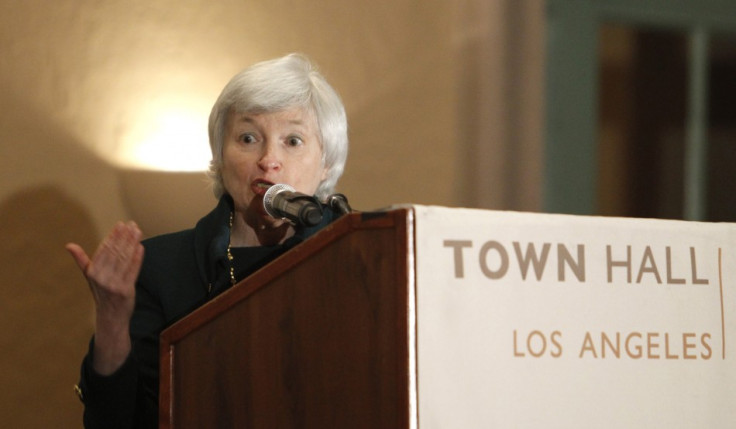Janet Yellen: Economist's Economist to Lead US Federal Reserve?

Central bankers are not known for being the most sociable or plain speaking figures.
Markets have a tendency to hang onto their every word and for good reason.
Central banks wield far-reaching influence over the value of a currency, the amount of credit swirling in an economy and the level of inflation at any given time.
In times before the Great Recession, very few people took any notice of them and why would they?
Central bankers are fundamentally technocrats and technocrats are generally defined as people with a high degree of expertise in a narrow area.
But central banks are a little different. Their economists analyse vast sums of empirical data in an attempt to manage future expectations of entire populations.
Such foolhardy work based on flawed forecasting has the potential to go horribly wrong.
Ask former head of the Federal Reserve Alan Greenspan who presided over a long period of low inflation and high growth until it all came crashing down in the American housing market.
Since the worst financial crisis erupted in 2008, central banks have launched massive interventions to calm volatile markets.
They have done this with extremely low interest rates and repeated injections of cheap money to plug a huge loss of confidence.
The Fed's Power
The monetary superpower in the world is the US Federal Reserve which looks after the world's most important world currency, the US dollar.
The person who heads the Fed is therefore the most influential central banker in the world.
Any misspoken words by the chairman of the Fed can move markets and anything else they do or do not do can have massive consequences for the world economy as well.
Perhaps the need for diplomatic silence is why Larry Summers withdrew his candidacy from the race to succeed Ben Bernanke whose current reign ends in 2014.
Summers has a reputation for speaking his mind in a way that inflames listeners rather than soothes them.
A trait like that is not one which is prized in a central banker. Projecting an atmosphere of calmness and control is the opposite quality that is needed.
Just think of Mark Carney, governor at the Bank of England who oozes charm and has the politician's talent for answering difficult questions in ambiguous ways that are open to interpretation.
Summers never seemed to have the trouble of making himself understood in life.
When he was still in the running, before his sudden exit as a contender for the Fed role, his main rival was Janet Yellen.
Yellen is far less aggressive and appears more collegiate in her approach to decision making. Perhaps she has a delicate manner that might come from her academic background.
Her Credentials
By all accounts Yellen is an outstanding economist and public servant who understands economic concepts at a very high level and has a significant body of research behind her.
She worked at prestigious universities such as the University of California, Berkley, Harvard University and the London of Economics.
In her public career she achieved even greater distinctions.
She was president and executive officer of the San Francisco Federal Reserve Bank and prior to that was chairwoman of the Council of Academic Advisors to President Bill Clinton.
Furthermore, she was also chairwoman of the economic policy committee of the Organisation for Economic Co-operation and Development.
What Will She Do?
Everyone knows that the priority for whoever succeeds Bernanke will be to unwind the monetary stimulus that was unleashed to jumpstart the US economy.
The biggest risk so far identified by seasoned analysts and market commentators is a currency crisis in the emerging world whose current account deficits and growth positions have worsened.
Many are saying she will continue the Fed's quantitative easing and not terminate it straight away.
However, at some point the Fed will have to exit it, it's just a question of when.
Beneath Yellen's calm demeanour, she will confront immense challenges.
While her current boss oversaw and led some of the most unconventional monetary policies in history and she was by his side in designing and implementing these, it might ultimately be her job to end them.
How she might do this is a fascinating question.
© Copyright IBTimes 2025. All rights reserved.






















